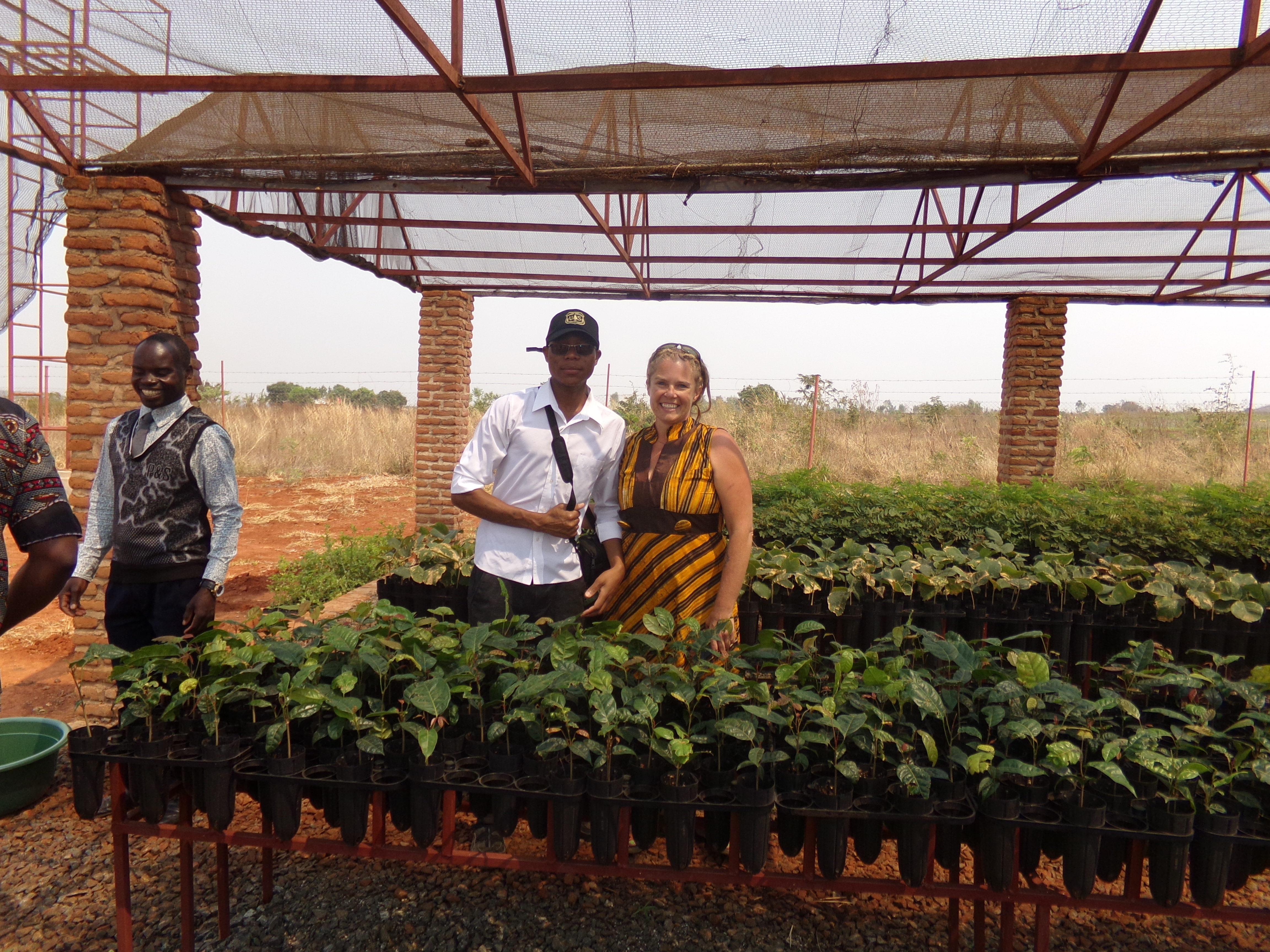This month, the U.S. Forest Service was in the Milange District of Mozambique’s Zambézia Province, where it supports a demonstration nursery project with community development organization Esperanca Para Novo Rebento (ESPANOR).
Communities in the Milange District are suffering the results of deforestation – destabilized river banks, a lack of shade for crops and living spaces, and a lack of firewood and building material. Over 80 percent of the Milange District population is active in the agrarian sector and relies on the mountain’s forests and ecosystems for their livelihoods.
To help communities take action against these problems, ESPANOR started a native tree nursery with U.S. Forest Service support. The seedlings it is producing will go directly to local farmers and eventually to larger reforestation projects. ESPANOR wants to restore three mountains in the local area once it grows its seedling production.
“Our production goal is 5,000 seedlings this year. Five hundred will go to each of the 10 communities we support,” said ESPANOR nursery manager Chalosse Bernardo Guidione.
“We would like local farmers to each receive seedlings to plant across their own property, providing shade for the living spaces and organic matter for the fields with the dropping of leaves throughout the growing season,” said ESPANOR conservationist Antonio Armando Coher.
ESPANOR wants its nursery to be a model for restoration across the transboundary landscape — the Milange District is on the border with Malawi– and is already collaborating with a like-minded organization on the Malawi side.
The organization knows that supporting forest and watershed health in Mozambique (and eventually Malawi) will improve livelihoods and provide local communities with sustainable natural resources. It’s already happening in the Milange District.

U.S. Forest Service consultant Rebecca Lieberg (right) was in Mozambique this month to provide technical expertise on simple, science-based nursery practices for community development organization ESPANOR.
Natural resource management investments are beginning to flow to the region; currently, the World Bank is initiating a Forest Investment Project targeting Zambezia and Cabo Delgado provinces with the aim of stemming deforestation, improving forest management, and creating new rural livelihood opportunities. National Geographic is conducting field work on one of the province’s inselbergs -- Mount Chiperone -- to further explore the biodiversity of these cloud forests and the benefits they provide to the surrounding communities; namely, the moisture-providing weather systems and the mountain as a potential, reliable wood source.
The U.S. Forest Service is complementing these efforts by helping ESPANOR implement nursery best practices that will help them scale up and expand their restoration impact.